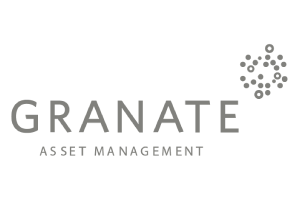Post-Investment Financial Management
Everything you need to know in order to keep your company finances on track after securing investment.
OVERVIEW
Get assistance with your post-investment financial management with OCFO.
CONGRATULATIONS! YOU’VE RAISED FUNDING! Your ideas and efforts over the last few years have been recognised by an investor. Now that the celebrations are over, the work starts in delivering on your promises and keeping your investors informed with post-investment financial reporting.



WHAT’S INCLUDED
Get access to the right financial direction for your growing business.
The importance of regular and accurate reporting
Reporting allows your investors to stay up to date on your company and their investment.
Every investor is different. Each has different reporting requirements. Some are very specific and want financial information completed on their in-house templates. Others want more high-level information and forecasting. Your company’s financial information may be part of a large portfolio that is consolidated on a monthly basis by the investor. What this means in practice is they will need similar financial information to what they receive from their other investees.
It is important to contact the investor soon after you have received their investment to build early momentum and gain an understanding of what type of reporting they require. This proactiveness can save you from unnecessary costs at a later stage and will help start your relationship with the investor on a positive note.


Setting and keeping a budget
Budgeting allows for financial planning and benchmarking and can give your investor peace of mind.
Investors normally require that a fixed budget be set. The aim of any budget is to have a target to work towards. Sometimes the same annual budget that was used in valuing the business can be utilized, however, this budget will need to be broken down into a monthly budget. Sometimes such budgets are adjusted for significant changes. For example, if you received funding pre-Covid, the budget expectation could be very different as a result of lockdowns and the ever-changing business landscape.
Actual results for each month and for the year need to be compared to the proposed budget. This is commonly known as actual vs budget. Any large discrepancies need to be investigated and explained to the investor which can help with the overall financial management of the business.
Cash flow forecasting
As a next step from the budgeting process, the investor will want to know how the budget translates into cash for the business.
The cash flow forecast is a financial planning tool that shows the predicted flow of cash in and out of a project or organization each month. Forecasting will enable you to plan ahead so that you can anticipate periods of cash shortage and take corrective action ahead of time.


Key performance indicators (KPIs) and what they can tell you about the business
The investor will also want to understand what the KPIs are for the business and how they are tracking compared to budget and historical data.
Some examples of KPIs include:
- Gross Profit Margins (overall and per product)
- Number of sales per product
- Number of active customers
- Monthly Recurring Revenue - overall and per customer
- Average Cost of Service (ACS) - overall and per customer
- Customer acquisition costs (CAC)
- Customer Lifetime Value (LTV)
Directors’ Meetings


Implementing financial checks and controls
Because you are now responsible for third-party funds, the investor will likely require you to implement certain controls within the business.
You may have been running your business as a startup before the investment. Speed was probably crucial. Payments were made as and when they were needed and you would have been able to make payments without requiring authorisation. Now that you have secured investment, let’s have a look at what might be expected:
- All payments made from the business bank account require one person to load and another person to release (to reduce the risk of misappropriation of funds)
- All employees will require employment contracts, including you and your fellow founders. You may not have paid yourself a proper salary before but you will have to start.
- Standard operating procedures for various functions need to be implemented
- A controls assessment might be expected by the investor in order to understand the level of risk inherent in the business
TESTIMONIALS
What Our Clients Say.
Entrepreneurs change the world. They create growth, job opportunities and social impact. We serve entrepreneurs! Hundreds of founders and management teams tap into the expertise of their trusted finance and accounting partner to help scale their companies.
Business is about people. When you partner with Outsourced CFO, a finance professional or team with the right mix of knowledge, skills and experience is personally matched with your company – working with you to create a world class finance function for your growing company. Your success story is our success story.








PARTNERS
Our Clients.







RESOURCES
Read Our Latest Insights.

Ultimate Guide: When, Why and How Do I Hire a CFO?
Contents What is a CFO? The term chief financial officer (CFO) refers to a senior executive responsible for managing the long-term financial health of a

Improve your business plan and learn the difference between budgeting and forecasting
Improve your business plan and learn the difference between budgeting and forecasting If you’ve always thought forecasting and budgeting are one in the same, you

This due diligence checklist will ensure that your business is funding-ready
For any entrepreneur and business owner, there comes a point when their business is running smoothly, profits look good, and they consider scaling up. This
FAQ
Frequently Asked Questions
What is post-investment financial management?
As a solo entrepreneur, you have direct access to your business bank accounts and accounting records. Outside investors do not have that level of access. Outside investors still require access to regular information to assess whether their investment is performing well or not. To compensate for that lack of access to information, new investors would expect regular management reports.
After an outside investment is made into your business, the new investors expect regular financial reporting (e.g. monthly) and compliance with legislation. The larger a business grows, the more legislation becomes applicable to it.
Key performance indicators (KPIs) may also have been set by the investors as part of their requirements for investing. These KPIs need to be measured on a regular basis and communicated to those investors.
How to know if I need post-investment financial management support?
Most companies can benefit from expert support during the post-investment phase. Investors will require detailed and specific financial reports in line with their company standards, which can place a strain on a smaller company and their financial team. An expert financial management team can ensure that this transition goes smoothly and that reports meet investor requirements.
What is cash flow forecasting?
The cash flow forecast is a financial planning tool that shows the predicted flow of cash in and out of a business and expected balances on a monthly basis for the next 12 months.
Why is cash flow forecasting important?
Forecasting will enable you to plan ahead so that you can anticipate periods of cash shortage and take corrective action ahead of time.
What are the benefits of cash flow forecasting?
Knowledge of current and future cash positions is essential for any business owner, so that they know how much cash is available in the bank at any one time, under any given scenario, allowing them to strategize accordingly.
Far too many businesses manage their business from their bank balance alone. This does not take into account that the business needs to pay sales tax in two weeks or income tax in 2 months. Businesses can become insolvent and be unable to trade if they are unable to pay large unexpected cash flows. Most cash flows are predictable, if a cash flow forecast is performed.
GET IN TOUCH
CFO Services
Please fill in your details below and one of our consultants will be in touch within the next 24 hours.
Services Lead Enquiry Form
"*" indicates required fields